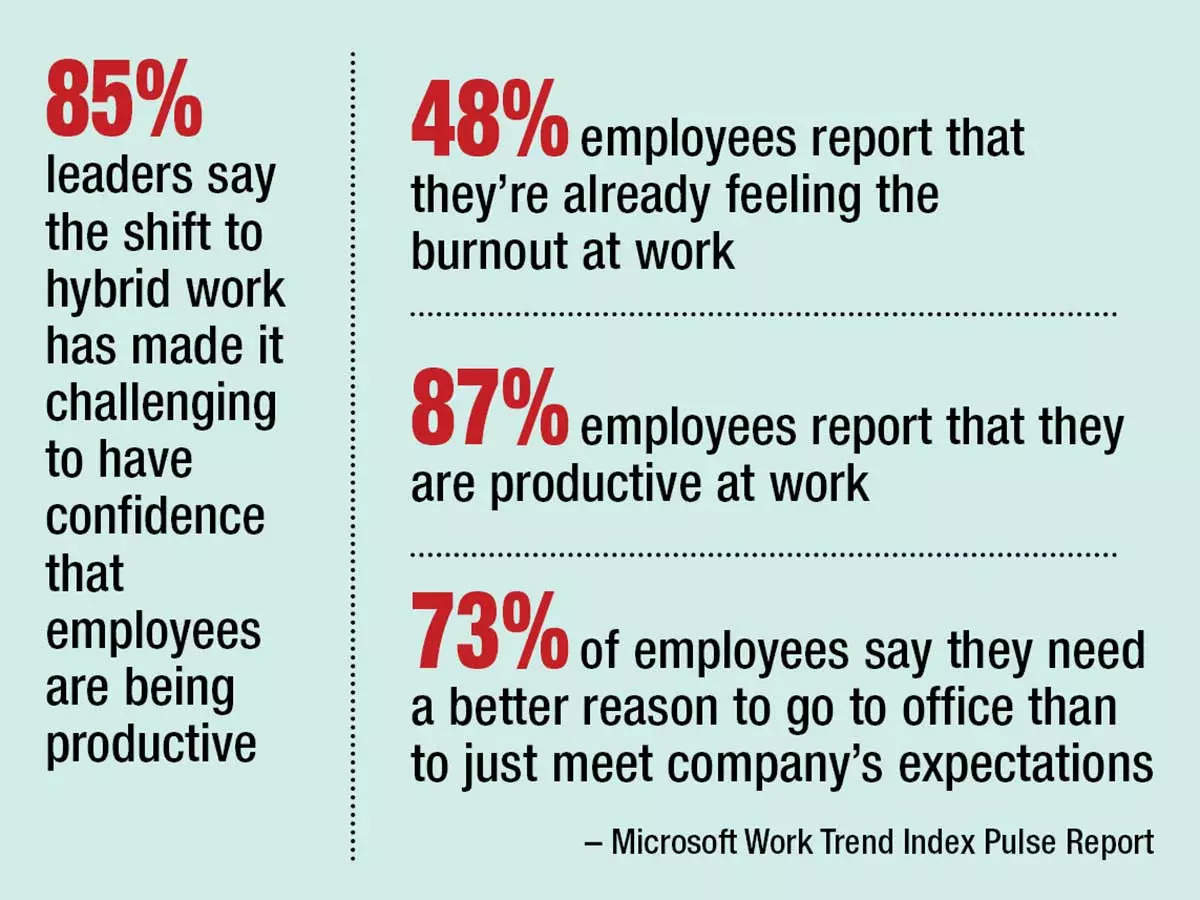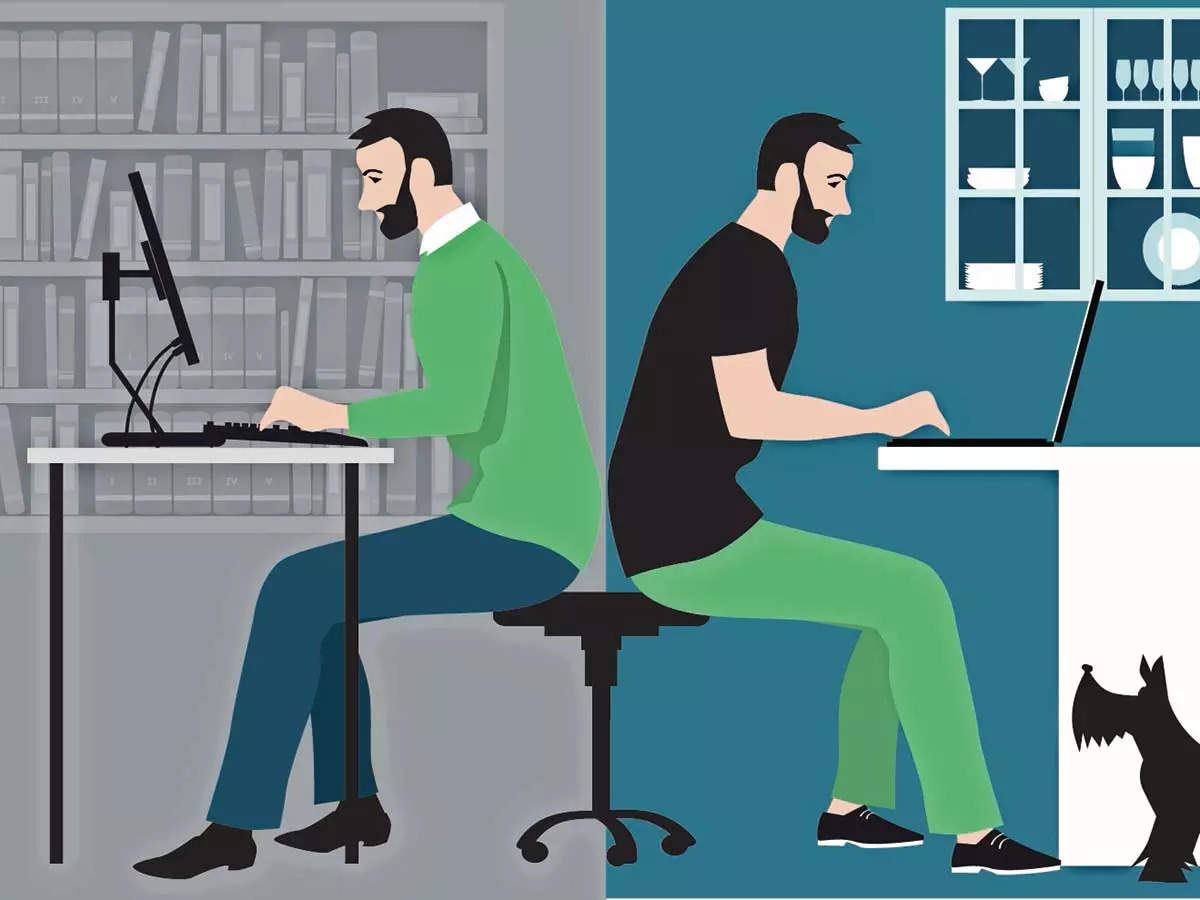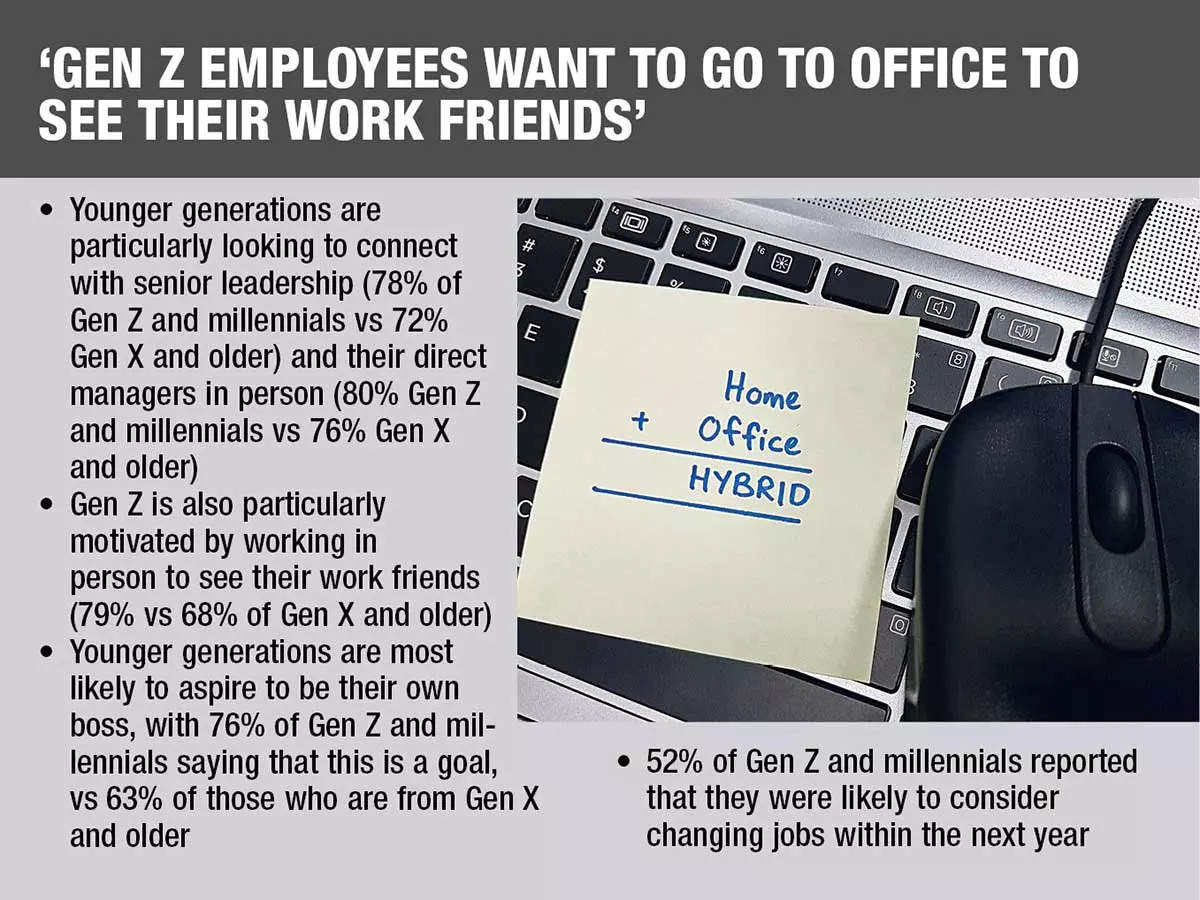‘THE DISCONNECT BETWEEN HOW MUCH PEOPLE SAY THEY ARE WORKING AND HOW MUCH LEADERS THINK THEY ARE WORKING IS STARK’
As per the Work Trend Index: Pulse Report, Hybrid Work Is Just Work. Are We Doing It Wrong?, 85% of leaders say the shift to hybrid work mode has made it challenging to have confidence in the fact that employees are being productive. “The disconnect between how much people say they are working and how much leaders think they are working is stark. Eighty five per cent of leaders say that the shift to hybrid work has made it challenging to have confidence that employees are being productive. And as some organisations use technology to track activity rather than impact, employees lack context on how and why they’re being tracked, which can undermine trust and lead to ‘productivity theatre’. This paradox has led to productivity paranoia, where leaders fear that lost productivity is due to employees not working, even though hours worked, the number of meetings and other activity metrics have increased,” as per the report.

Sriti Kumar*, an employee at a tech company, says he is more productive when he works from home. “During our meetings, our boss keeps telling us that theoutput has not been the same since we started working from home. We have been asked to come to the office for three days, but I don’t see any difference in the work dynamics. I think I probably work better and more efficiently when I am at home. The time that one spends in commuting, getting ready and waiting in traffic can be utilised in doing something more productive but how do you make someone believe that you are being productive?” he says.
Ranjini Singh, an employee at an automobile company, feels that there is no work-life balance since the hybrid mode started. “I start my day at 9am and I am mostly answering calls till 9pm and there are some days when you have nothing concrete to show because you are attending calls and working on a project that can take two-three days. This wasn’t the case when we were regularly working from office. You cannot argue that we are not working hard because there is no obvious result for the day. ”
*Name changed on request








